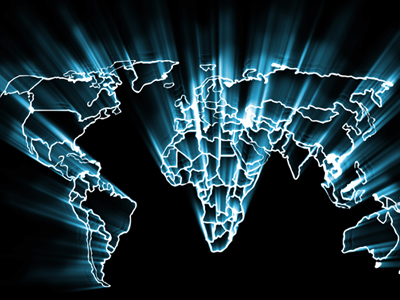By Greg Klein for www.resourceclips.com
Read this book and you might want to renounce technology to live in a cave—provided it’s equipped with battery rechargers. Author David S. Abraham brings out some of the paradoxes of our dependency on increasingly elusive minerals while explaining the complicated but murky background of interconnected economic, social and geopolitical forces. It might take an event comparable to OPEC’s 1973 oil embargo to jolt Western society out of its ignorance. Abraham tries to protect us from such a rude awakening with The Elements of Power: Gadgets, Guns, and the Struggle for a Sustainable Future in the Rare Metal Age.
“This book comes at a defining time when rare metals are increasingly critical for high-tech, green and military applications,” he declares. “Yet despite their prevalence, they are not understood.”
By rare metals he means rare earths, tantalum, niobium, lithium, cobalt, graphite and more. Having examined a decade’s worth of reports, he finds “more than half the elements on the periodic table are ‘critical’ to one country or another.”
Resources can be limited and the route from mine-to-market complex. As a case study he presents the electric toothbrush, comprised of roughly 35 metals and relying on “an extensive supply chain: miners like China’s Xiamen Tungsten to supply the metal; a plant in Estonia to process it; and metal traders in New York to provide the alloys to component manufacturers, who sell their wares to the toothbrush manufacturer. It is a web that spans six continents.”
That’s just one example. As the “electronification of everything” coincides with the growing aspirations of emerging economies, “the future of our high-tech goods may lie not in the limitations of our minds, but in our ability to secure the ingredients to produce them…. At no point in human history have we used more elements, in more combinations and in increasingly refined amounts. Our ingenuity will soon outpace our material supplies.”

Hardly limited to consumer luxuries, the metals are essential to uses ranging from green technology to medical instruments to the weapons systems behind a country’s national defence.
Yet sources of production can be frighteningly limited. Some 85% of the world’s niobium comes from Brazil’s Araxa mine, Abraham points out. “Relying on one country and one mine in particular is a risky proposition. A natural disaster, political changes or conflict such as we have seen in Congo can quickly create shortages.”
Then there’s the geopolitical power of countries holding scarce resources. That’s a lesson Japan learned quickly when it challenged China in a territorial dispute, only to lose access to rare earths.
In fact manufacturers from Japan and elsewhere have been relocating their operations to China to ensure supply. One academic tells Abraham that “over the next several decades, every high-tech system—from cars to solar panels—could very well be produced in China.”
Moving to another disturbing topic, Abraham looks at some conflict minerals.
In Colombia, FARC rebels, who have been fighting an insurgency against the government since 1987, produce tungsten from the depths of the Amazon jungle. In Democratic Republic of Congo, anti-government forces and rebel gangs make millions producing tungsten, tin and tantalum. In 2011, about 21% of the world’s tantalum supply came from regions in conflict and almost all of it was processed in China. On the twin Indonesian islands of Bangka and Belitung, bands of small-scale illegal miners dig up more than a third of the world’s tin from jet-black cassiterite minerals, and unknown amounts of other minerals like xenotime and monazite, which hold rare earth elements.
Where’s that stuff going? Often into products we take for granted. Due to long, baffling supply lines, “a lot of companies have no idea whether or not they’re using conflict minerals,” MetalMiner publisher Lisa Reisman tells Abraham. The author adds, “Even Apple notes that it does not have enough information to conclusively determine which country the minerals it uses come from.”
Abraham tackles other topics as well, including the appalling environmental practices in mining regions like China’s Jiangxi province. Our footprint is there, he says, because “nearly all of your electronics contain specks of metals from those mines.”
Here in the West, our efforts to produce cleaner energy and more energy-efficient machines call for additional metals. “Mining is not antithetical to a green economy; it’s a necessity.”
People who follow resource-related topics will certainly appreciate Abraham’s insights. But other readers might find his book an especial eye-opener. It could make a suitable Christmas gift for any high-tech consumers or green activists who not only disdain mining but deludedly think they abjure the industry.
Unless they live in caves—without battery rechargers—they’re as much a part of the Rare Metal Age as anyone else.
Read more at original source: www.resourceclips.com

